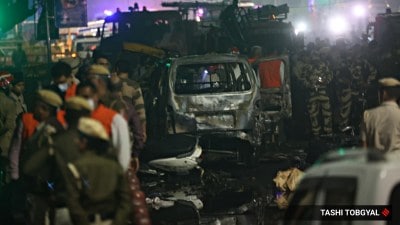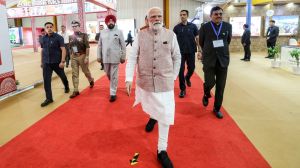RBI sore with banks on NPA recovery scheme
Calcutta/Mumbai, Nov 30: The Reserve Bank of India is unhappy with the poor results yielded by the compromise settlement scheme, a shortcu...

Calcutta/Mumbai, Nov 30: The Reserve Bank of India is unhappy with the poor results yielded by the compromise settlement scheme, a shortcut method detailed by the Union Government to help banks recover non-performing assets (NPAs).
The RBI has told the chiefs of the government-owned banks that the scheme’s working was reviewed by it and the findings are not encouraging at all. The scheme has to be offered to all borrowers with NPA below Rs 5 crore, and allows them to get away by paying only the loan plus interest as on March 31, 1997.The RBI’s settlement advisory committee had reviewed the performance of the scheme as implemented by various banks.
According to the review, the recoveries have not been satisfactory for any category of borrowers other than the small-scale sector. The committee said the banks lack the realistic approach required to make the settlement scheme a success.
The RBI feels that the banks should have first concentrated on reducing the existing NPA and improving credit appraisal and post-credit monitoring.Commercial banks had a total gross NPA of Rs 60,841 crore at the end of 1999-2000, and a net NPA of Rs 30,152 crore. The corresponding figures for the previous year were Rs 53,294 crore and Rs 26,188 crore respectively.
During 1999-2000, the old private sector banks recorded gross and net NPA figures of Rs 3,986 crore and Rs 2,484 crore respectively. The new private sector banks had a total gross NPA of Rs 946 crore and net NPA of Rs 636 crore (net). The foreign banks had a gross NPA of Rs 2,615 crore, and a net NPA figure of Rs 844 crore.
The government banks have also been told to follow up vigorously the suits they had filed against wilful defaulters in the courts. This will help the debt recovery tribunals to decide the cases within six months as laid down in the Debt Recovery Tribunal Act.
The banks have been told to realise such dues at the earliest and send quarterly reports to the settlement advisory committee regarding all bad loans above Rs 5 crore.
RBI sets up another group on bank inspection: Even as a host of inspection reports have piled up in the Reserve Bank of India’s vaults without any action, the RBI has constituted a seven-member multi-disciplinary working group to look into the introduction of risk-based internal inspection and audit in banks in the country.
The group, which is expected to submit its report by January 31, next is to suggest modifications with regard to the existing internal audit practices in banks which might be required to implement the shift in focus to risk-based approach and outline a time-frame and sequence of measures required for implementation of its recommendations. However, the formation of the panel assumes significance in the wake of the rising NPAs which has now soared past the Rs 60,000 crore mark.
According to union sources, RBI has not taken action on inspection reports of several banks in the last five years. “Inspection reports are also kept secret like the loan defaulters,’’ said a banking source.
The group is to examine the applicability of the risk-based internal audit and propose the methodology for implementing the shift in focus from transaction to risk-based approach and prepare guidelines to be issued to the banks with regard to risk assessment methodology and audit plan, the RBI said here in a release.
Adherence to the internal operational guidelines and procedures has gained more importance in recent times in view of the deregulatory process initiated by it in important areas of banking operations, particularly in regard to prudential concerns and risk management practices, the RBI said.
The RBI said recent international experience has also highlighted the need to have risk-based internal inspection and audit in banks. The Basel committee on banking supervision in a consultative paper in July last had emphasised on risk focussed internal audit, the RBI said.
Institute of Chartered Accountants of India president G Sitharaman is the committee chairman. The other members are chief general manager-in charge K L Khetarpaul, chief general manager A L Narasimhan (from RBI), Bank of India general manager N L Ajwalia, Bank of Baroda General Manager N S Srinivasan, State Bank of India deputy general manager R Nagarajan and RBI DGM R M Thakkar.





- 01
- 02
- 03
- 04
- 05


























